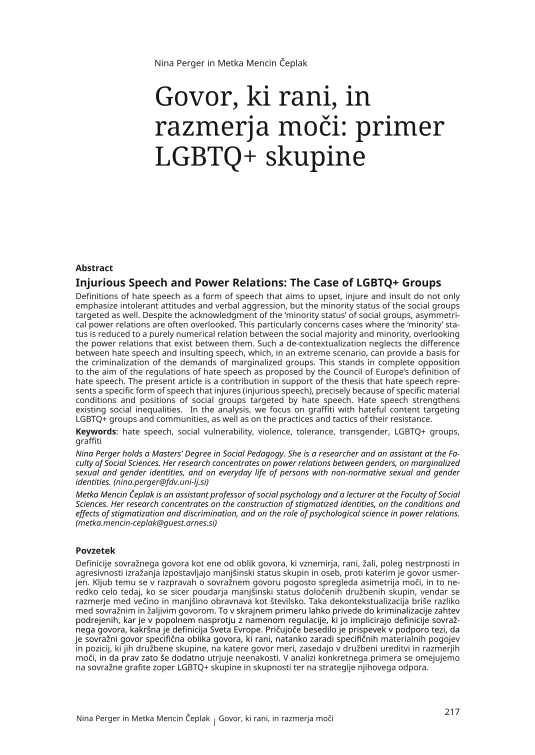Definitions of hate speech as a form of speech that aims to upset, injure and insult do not only emphasize intolerant attitudes and verbal aggression, but the minority status of the social groups targeted as well. Despite the acknowledgment of the ‘minority status’ of social groups, asymmetrical power relations are often overlooked. This particularly concerns cases where the ‘minority’ status is reduced to a purely numerical relation between the social majority and minority, overlooking the power relations that exist between them. Such a de-contextualization neglects the difference between hate speech and insulting speech, which, in an extreme scenario, can provide a basis for the criminalization of the demands of marginalized groups. This stands in complete opposition to the aim of the regulations of hate speech as proposed by the Council of Europe’s definition of hate speech. The present article is a contribution in support of the thesis that hate speech represents a specific form of speech that injures (injurious speech), precisely because of specific material conditions and positions of social groups targeted by hate speech. Hate speech strengthens existing social inequalities. In the analysis, we focus on graffiti with hateful content targeting LGBTQ+ groups and communities, as well as on the practices and tactics of their resistance.




